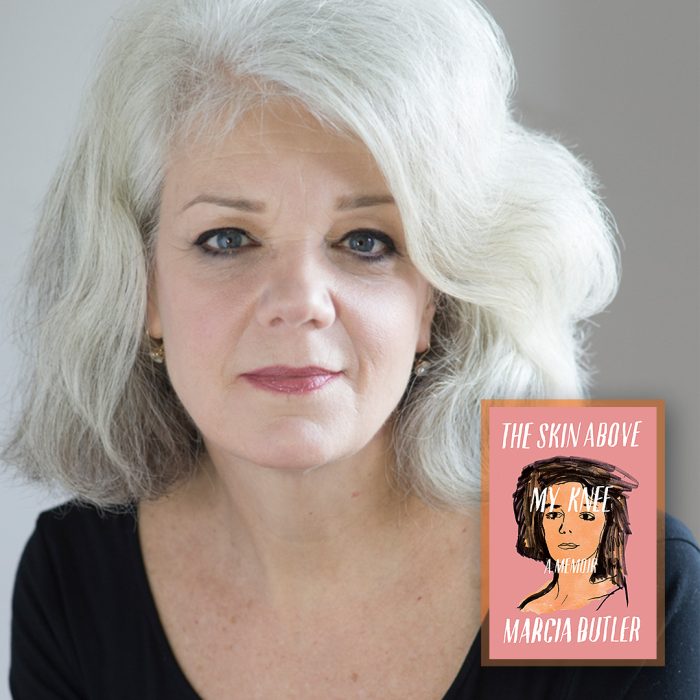Launched This Week: December 5th-9th
“There are so many ways to tell any story, just as there are thousands of ways to play a Mozart melody.”

“There are so many ways to tell any story, just as there are thousands of ways to play a Mozart melody.”
Marcia Butler’s critically-acclaimed memoir The Skin Above My Knee was published earlier this year by Little, Brown. The book documents her 25 years as a professional musician, when she performed as a principal oboist and soloist on the most renowned of New York and international stages. She was a 2015 recipient of a Writer-in-Residence through Aspen Words and the Catto Shaw Foundation. Her work has been published in Literary Hub, PANK, Psychology Today, The Aspen Institute, BioStories, and others. She lives in New York City.
Marcia’s Catapult bootcamp, The Writing Life for Procrastinators, is on October 21st. You can find out more about the class and register here.
Below, Marcia shares some of her thoughts on the creative life.
*
I sit on my sofa, computer nestled in my lap. All social media applications are closed. My phone is set on mute and for added protection (just in case I’m lured by the buzz) I’ve buried it beneath my pillow in the bedroom. I look out my North-facing window and begin to muse about cloud formations; the wind must be strong. It is 8am, my work day has begun. I close my eyes to those clouds and refocus on my computer. A word document pops up and I dig in.
For three hours my sentences are stubborn, unyielding, and at times downright awful. But I’m used to enduring that discomfort. I think about the years before I was a writer, when, as a professional oboist I understood that dissatisfaction is a necessary and, oddly, fruitful reality. Years of tolerating the rub of daily failure has enabled me to realize the possibility of following and fulfilling my personal creative imperative.
Everything I know about discipline, success, procrastination, failure, progress, the mind-bending reality of perceived futility, and the exquisite effervescence of a breakthrough, I’ve learned through being a professional musician. Musicians live and work by standards that most people cannot comprehend, much less maintain. We don’t learn as we go, or get up to speed, or practice only when the spirit moves us, or wing it, or ever fake it. We can’t put things off or cancel commitments or rely on workmates. Submitting to, or even believing in, a block is pretty much a joke. None of this is remotely possible in the music profession.
Musicians prepare carefully by learning their parts down to the last eighth note. In many cases, they study the scores of the music on an upcoming concert to the best of their ability. All of this occurs before they even show up to the first rehearsal; it is understood that the starting point must already be at a very high level. Once in rehearsal, musicians go deeper into exploring, further understanding, and perfecting the music. While in performance, they expect excellence of themselves and colleagues. Yet they are also prepared to be humbled at some point during every concert; an exposed entrance may not speak as they had intended, or a difficult passage may sound slightly marred because fingers shake a bit. But neither bravos nor the shame of failure are the reasons musicians work so hard. Great music and the art form itself demands no less.
My musical voice as an oboist was unique. So too, is my writing. The personal essays I write and the stories I invent are mine alone. Characters feel like friends. I get to know them over many drafts and through unimaginable story threads via world building and plot development. There are so many ways to tell any story, just as there are thousands of ways to play a Mozart melody. The final rendering of both words on the page and music in a concert takes perseverance, dedication, much struggle, and yes, time. Waiting for solutions to land in the proverbial lap one wonderful day where it all ‘comes together’ is a fantasy. There is no substitute for sitting with the plot, the page, the paragraph, the line, the word, and endure tossing out those darlings, massive revision, and line editing. Then repeat.
I’ve come to understand what is at work when my creative imperative is active. It shows up as an awareness and openness to what arises in the moment; an ability to step out of the way and allow for ‘thrust’ to take over and move me to the next level. It is a sensitivity to the hyper-vigilance needed when the beauty of creation takes place. Finally, I understand that whatever happens on the concert stage or on the page, I am driven, ultimately, by the art.
So, I sit on my sofa, computer nestled in my lap. I write my words. I throw them out. I ignore my phone and stay off Twitter. I try again. And though the day feels fruitless and progress impossible, I stay put. I pay attention because something is calling me. It is my creative imperative.